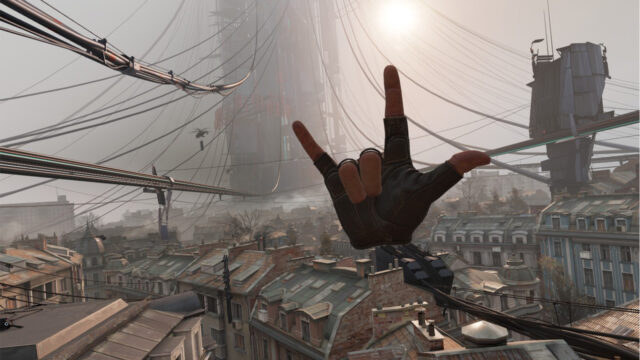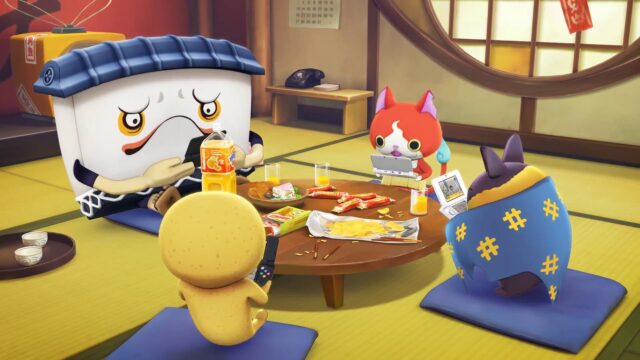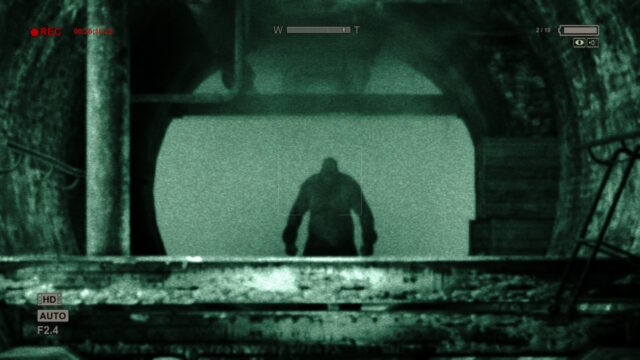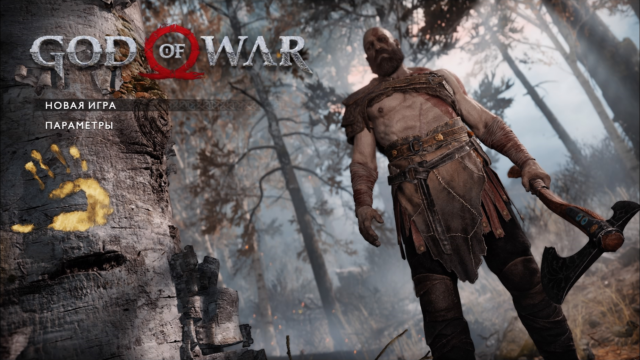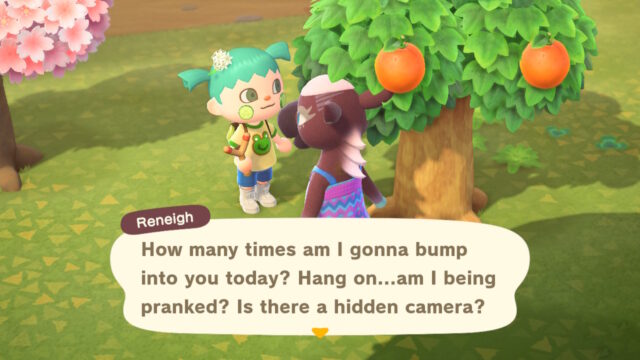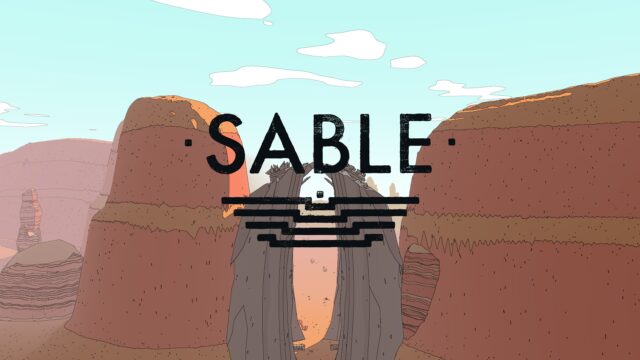Steam Library: Yakuza: Like a Dragon

When I started playing RPG with the proud title Yakuza: Like a Dragon, I expected something different. Grand showdowns between clans on the night streets of Tokyo? The sound of swords deflecting bullets? Smoke from the tires of a Mitsubishi after a bank robbery?..
Reality turned out to be different. I had to catch beetles on trees, crawl for loose change under vending machines with Coca-Cola, collect tin cans in a rattling contraption made from a bicycle, fight to the death with thugs from the neighboring street, sell tissues, and sleep in a cardboard box house. For the first few hours, the game joyfully presented itself as a “homeless simulator like a dragon”. And it was crazy, fun, and wonderful like never before.
Then everything became even more wonderful.
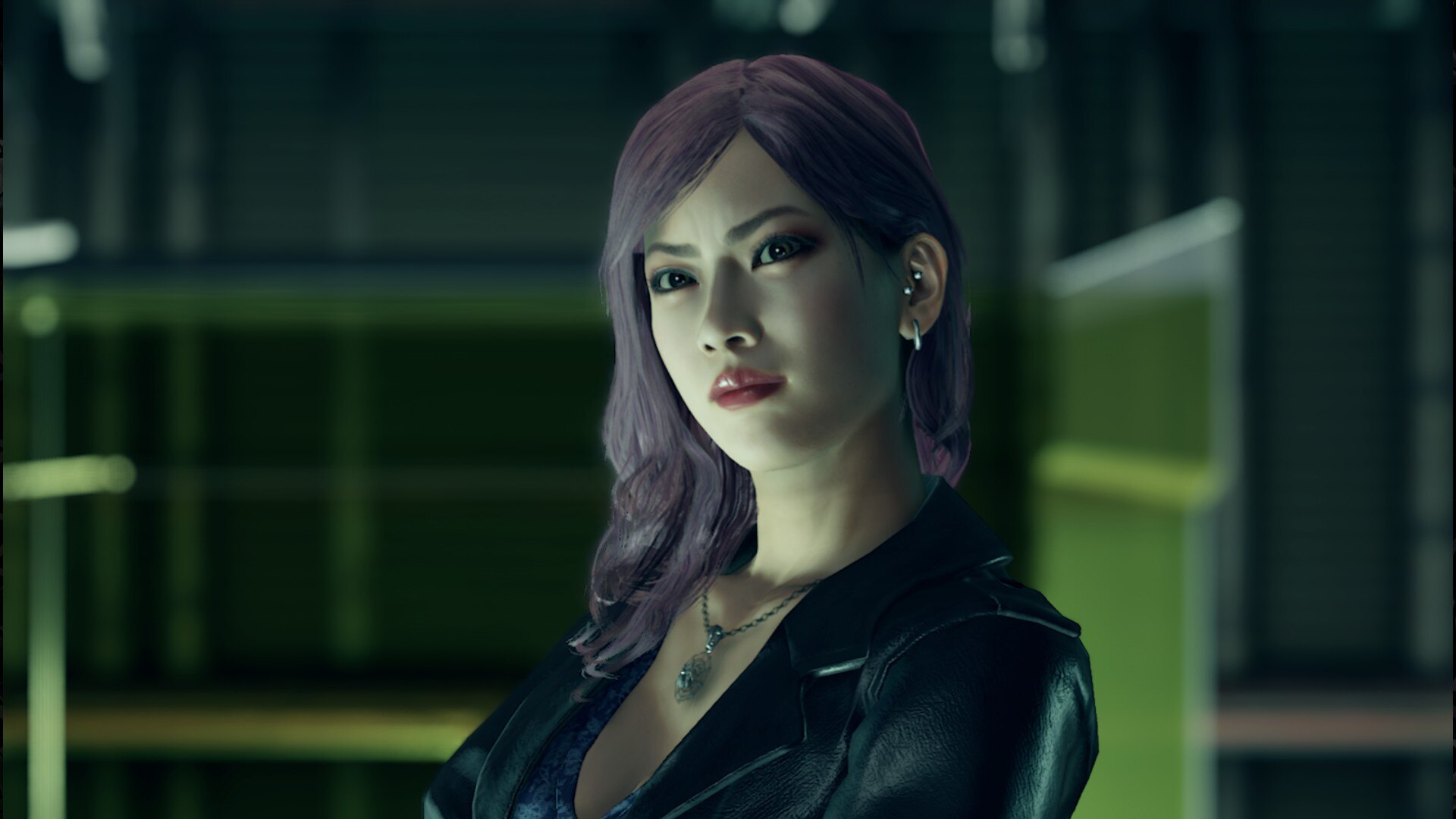
But let’s go in order.
In the previous parts of Yakuza, I must admit, I haven’t played (yes, I’m terribly ashamed). Like A Dragon, however, starts almost “from scratch”, with a new protagonist. Our current hero, who replaced Kazuma Kiryu in his proud position (at least I know that much!) – Ichiban Kasuga. An orphan, raised in a brothel and on the streets, where was he headed? Clearly, not to become a “salaryman”. Predictably – to the mafia. To the Arakawa family, the Tojo Clan.
But Ichiban didn’t stay there for long. Devoted to his patriarch and his son, like a samurai of ancient times – to his shogun, Kasuga is only too happy to prove his loyalty in any way possible. An opportunity presents itself quickly – he needs to go to prison in place of another, more “high-ranking” mobster. Ichiban agrees – and gets fifteen years behind bars. Eighteen, considering the fight he immediately gets involved in, defending his boss’s name.
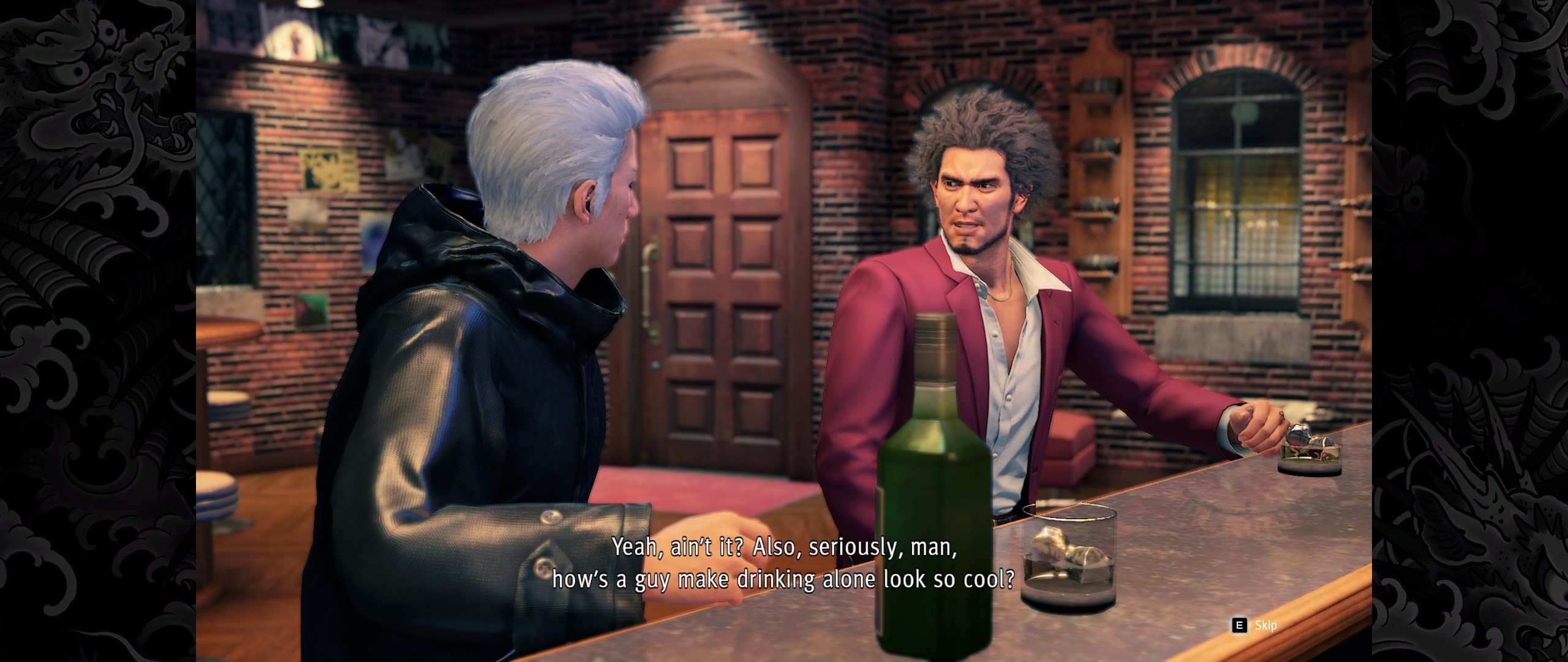
Almost two decades later, in 2019, he is released from prison… but the world, of course, has changed. It has changed too much for the shaken Ichiban, and it’s not just about smartphones and bitcoins. The Arakawa family betrayed the Tojo Clan and defected to their blood enemies, the Omi Clan. Trying to figure out what happened, and breaking through to meet the patriarch, Ichiban is shot in the chest instead of having a conversation, and his lifeless body is thrown into a dumpster…
But then Lady Luck intervenes. And our hero wakes up a couple of days later, miraculously patched up with fishing line and some Japanese mother’s help, on the outskirts of Yokohama, in a homeless camp. He has nothing but a tattered and bloodstained (but beloved) raspberry suit, no money, no ideas for the future, no friends, nothing. He has eighteen years of prison on his resume and the betrayal of his closest people.
Anyone else would lose all hope and, at best, drown their sorrows in alcohol. Anyone else – but not Ichiban, because this guy never gives up. Even as a forty-year-old unemployed former yakuza, he sets himself a goal – at the very least, to find out what happened to the Arakawa family while he was making cardboard boxes in prison. The career of an alcoholic can wait!
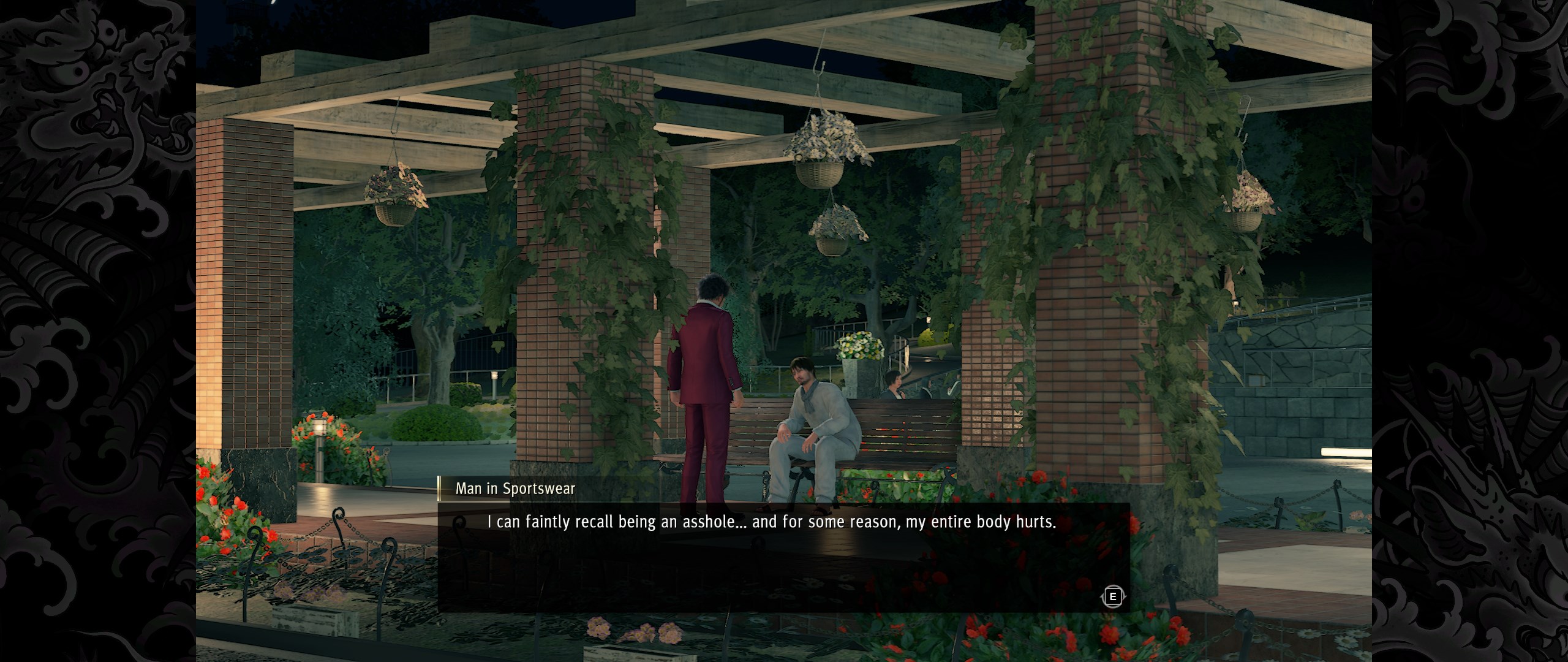
(If you’re tired of eternal teenage schoolboy heroes in jRPGs, this game is definitely for you. Here, almost all the main characters are at least 30, and some are even over 50. Pleasant diversity, I must say. Ichiban himself is forty-two.)
That’s how we embark on a big quest in a big city – the district of Yokohama, given to us for wandering, is quite large, albeit initially limited. By the fifth or sixth chapter, the protagonist will have to get used to using taxis so as not to constantly run back and forth on foot. On every corner – shops, random encounters, conversations with party members, crowds of clueless pedestrians, cars, bicycles, restaurants, rich people with golden “Rolexes,” and homeless people rummaging through trash cans… Of course, hungry Yokohama will initially try to devour Ichiban without sauce – but it won’t take long for our hero to break its teeth. Especially when he settles in, acquires a couple of loyal companions, a roof over his head, a few coins to buy ramen… you could say, happiness in his pocket!
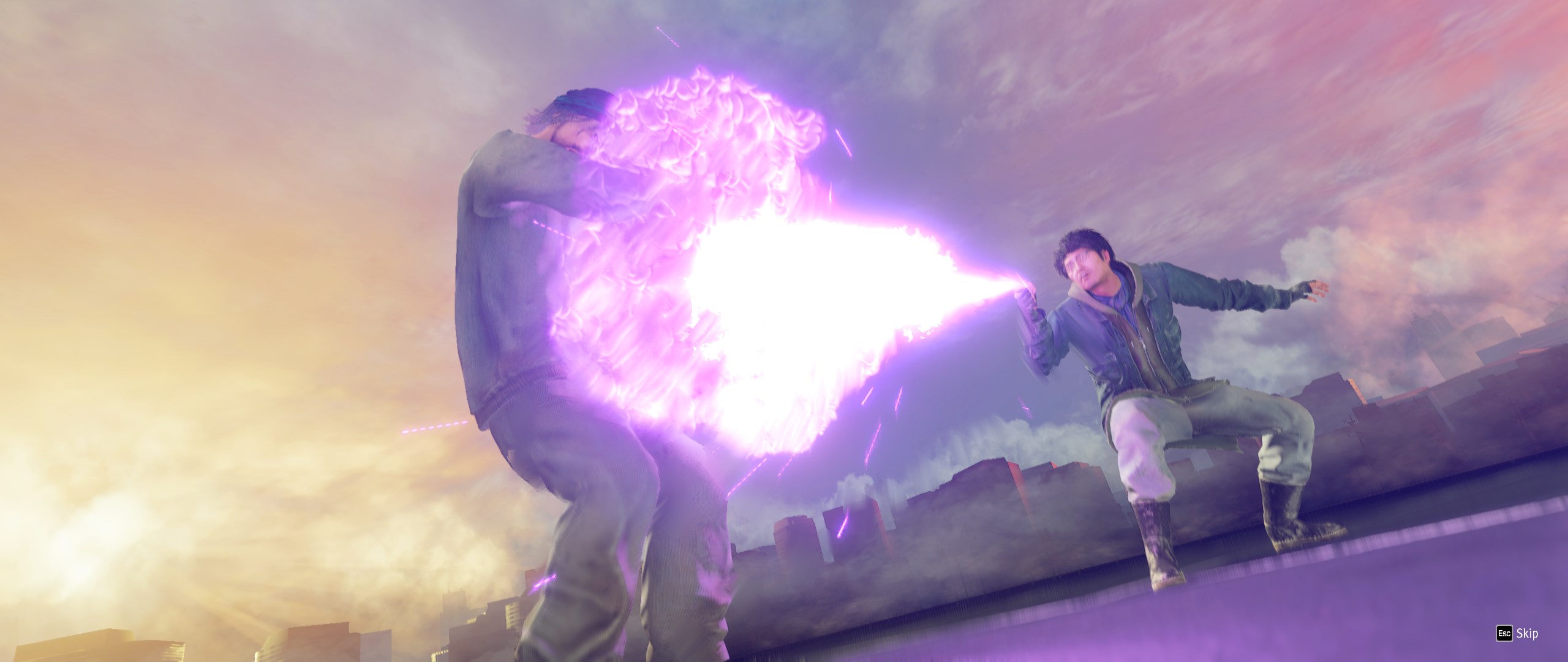
Ichiban has chosen for himself a difficult task, and it will take a lot of effort to solve it. To earn a reputation (through diplomacy and fists… who am I kidding, mostly fists), he has to get acquainted with three mafia clans operating in Yokohama, dig into old sources of information, and interrogate witnesses. The truth unfolds slowly, and the story becomes very convoluted. That’s what makes it more interesting. And along the way, many curious things happen.
The battles here, unlike the previous parts of Yakuza (which, as I mentioned, I haven’t played – but I hope to test Yakuza 0, which I bought on sale, soon), are turn-based, in the familiar jRPG style. Moreover, they are very amusing.
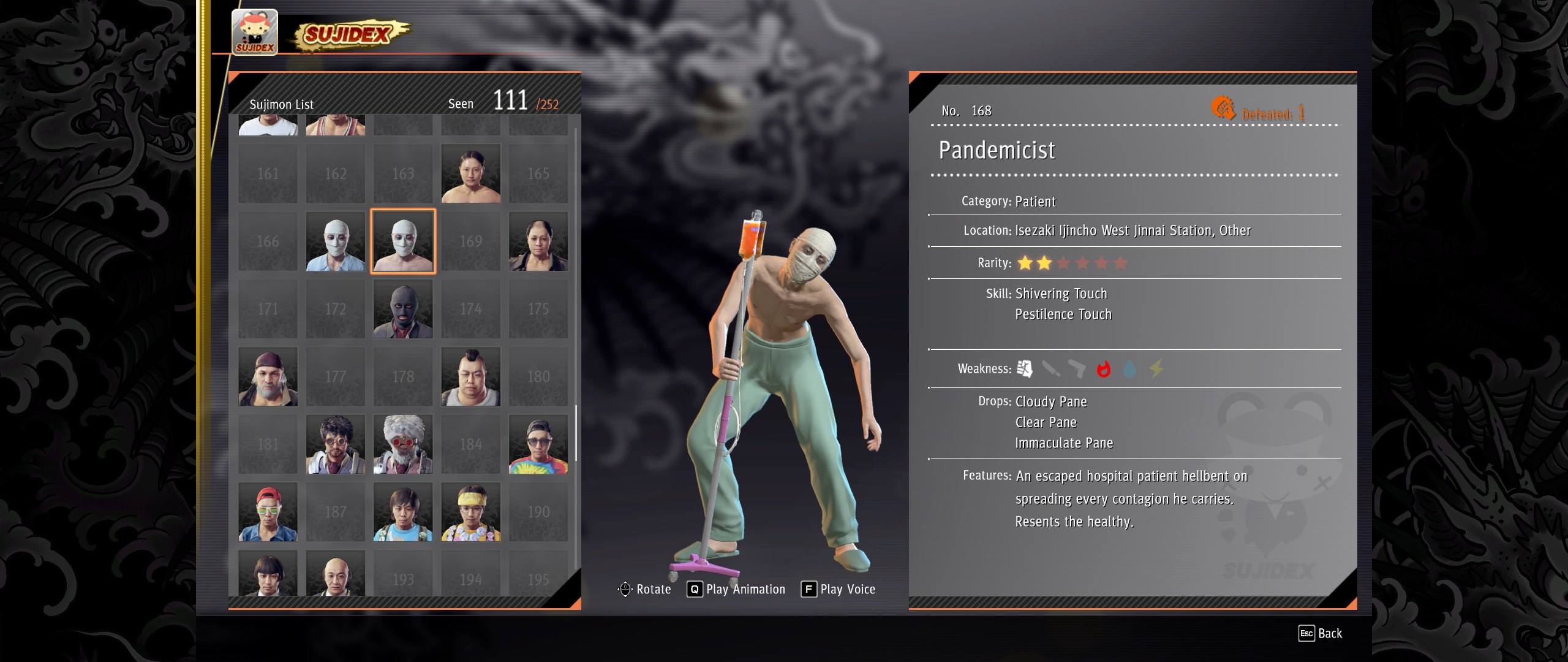
Ichiban is a fan of old-school arcades and video games, especially the Dragon Quest series. That’s why he sees his gang of slackers as a classic RPG party, himself as the brave leader, and the enemies as monsters on the path to victory. When encountering a gang of punks or bikers, Ichiban’s wild imagination kicks in instantly. The opponents are equipped with hyperbolic funny weapons, like giant bottles of Coca-Cola or inflatable hammers, or battle armor made from trash can lids, or something else befitting fantasy enemies… The game even has a quest called “Gotta Catch ‘Em All,” which gives us a journal-like Pokédex to record the encountered wacky little monsters.
And Yokohama’s “bestiary” is huge! Crazy Chinese cuisine chefs juggling knives; exhibitionist perverts (no, the game won’t show anything explicit, but they jump around in their coats hilariously); acupuncture professionals bristling with needles like hedgehogs; mafia members who can make phone calls and call for backup.
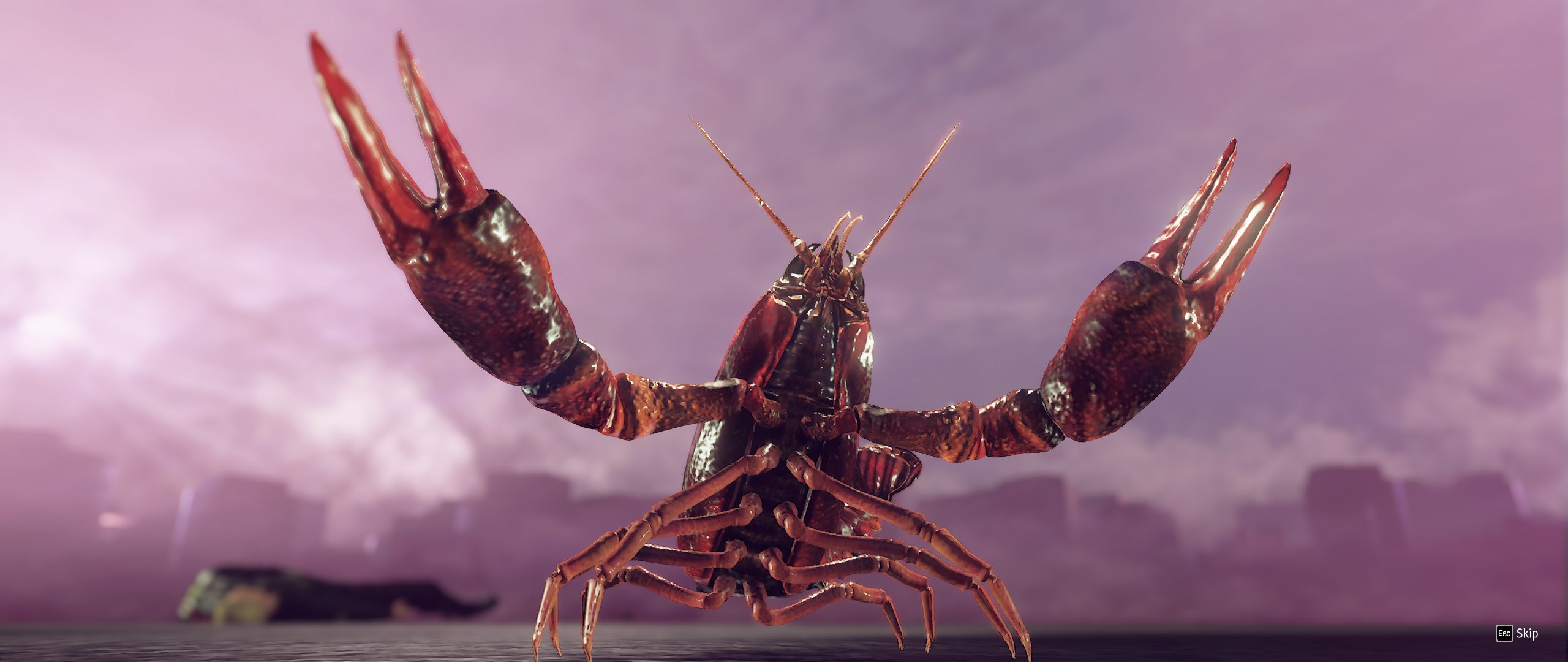
We ourselves are not bad either – as we complete quests, we accumulate more and more allies to whom we can send a request for support, some for money, and some completely for free! And then from the sky, a mountain of aggressive lobsters falls on the enemies, a pecking chicken flies down, a star from a Korean drama comes out of the alley, giving us a buff with its charisma and debuffing the enemies… Aaaah! It is impossible to watch all this without delight, sometimes forgetting to press the QTE buttons.
But even without these buttons (although it’s better to have them, of course), the attacks of the Ichiban company are quite sensitive. Ichiban himself has the “default” class – Hero, and although it can be changed, it’s somehow wrong to do so; Kasuga is truly the hero of his game, no doubt about it. However, the classes of the other guys can and should be changed as desired.
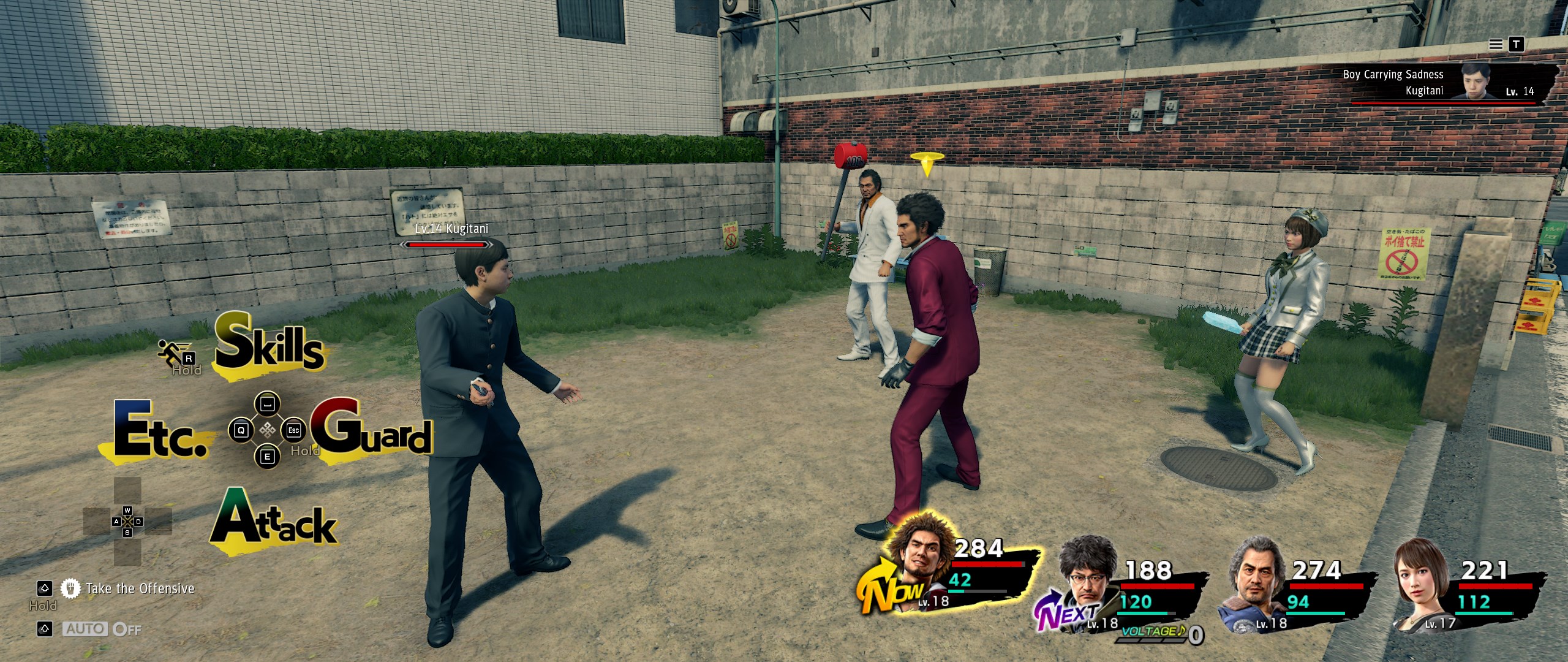
Comrades are not inferior in spectacle to the monsterarium. Girls can take classes like “Idol” (essentially a team healer who can also hit the enemy on the head with a microphone) and “Night Queen” (queen of the whip and paddle, inflicting harmful effects on enemies). Guys have options like “Homeless Guy” (by the way, a very useful class – can breathe flammable alcohol and unleash predatory pigeons on the enemy) and “Devil Rocker” (always dreamed of having a musician from KISS in your party? Here’s your chance!).
This whole ragtag gang initially passes through crowds of surprised enemies like a knife through butter. However, in Chapter 12, there is a difficulty spike that many complain about. Honestly, it didn’t impress me much: in jRPG, the need for leveling up beyond the storyline is expected. And if you complete all the side quests and explore bonus dungeons in search of treasures, you won’t remain weak. However, perhaps I am just one of those rare people who enjoy grinding…
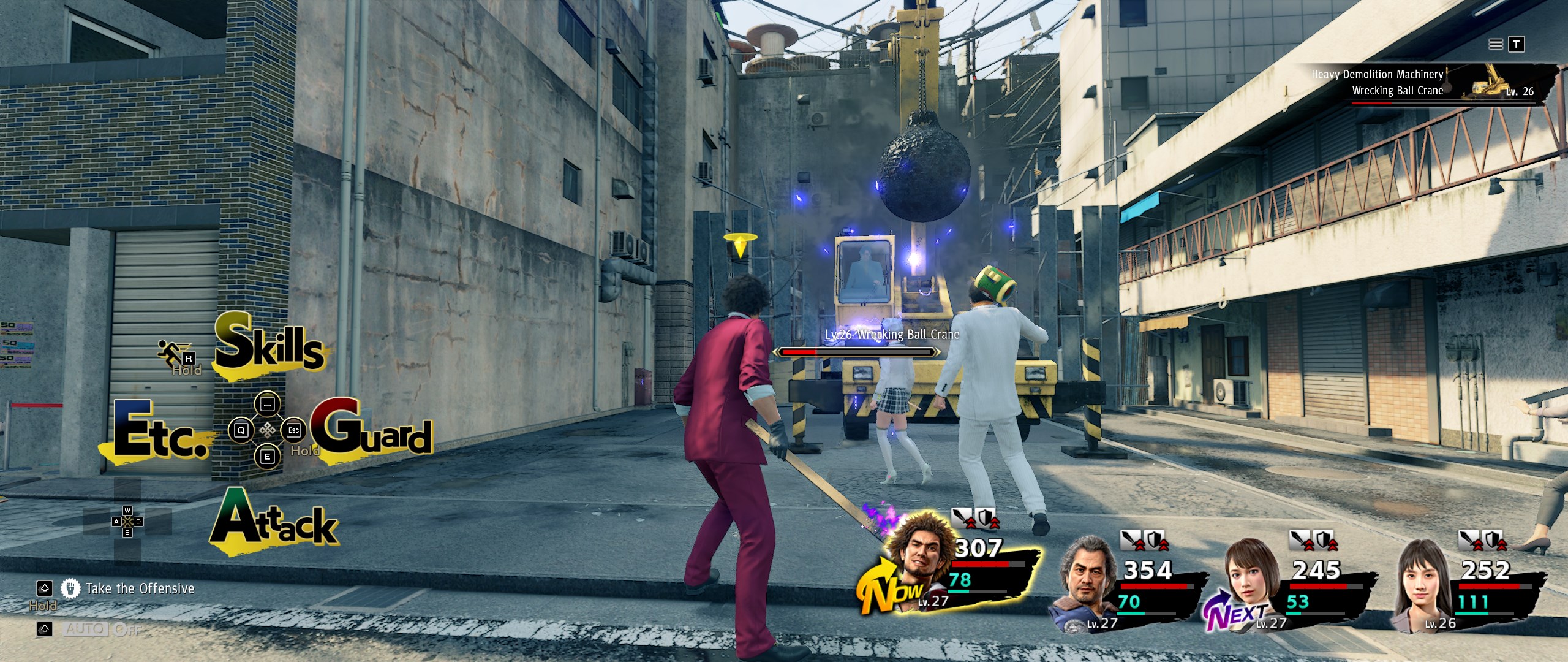
What annoyed me was the constant random encounters. No, they’re not “invisible” like on the map in early Final Fantasy games, we can see enemy gangs from afar, but there are MANY of them, especially at night. There is an item that allows us to remove them from the city, but we get it quite late, and they constantly get in the way – you can’t walk ten meters without running into another unfriendly crowd! Especially in low-level areas, where these vagrants and alcoholics drop loot and experience points like cockroaches, and time is wasted on battles. Sigh. But what can you do.
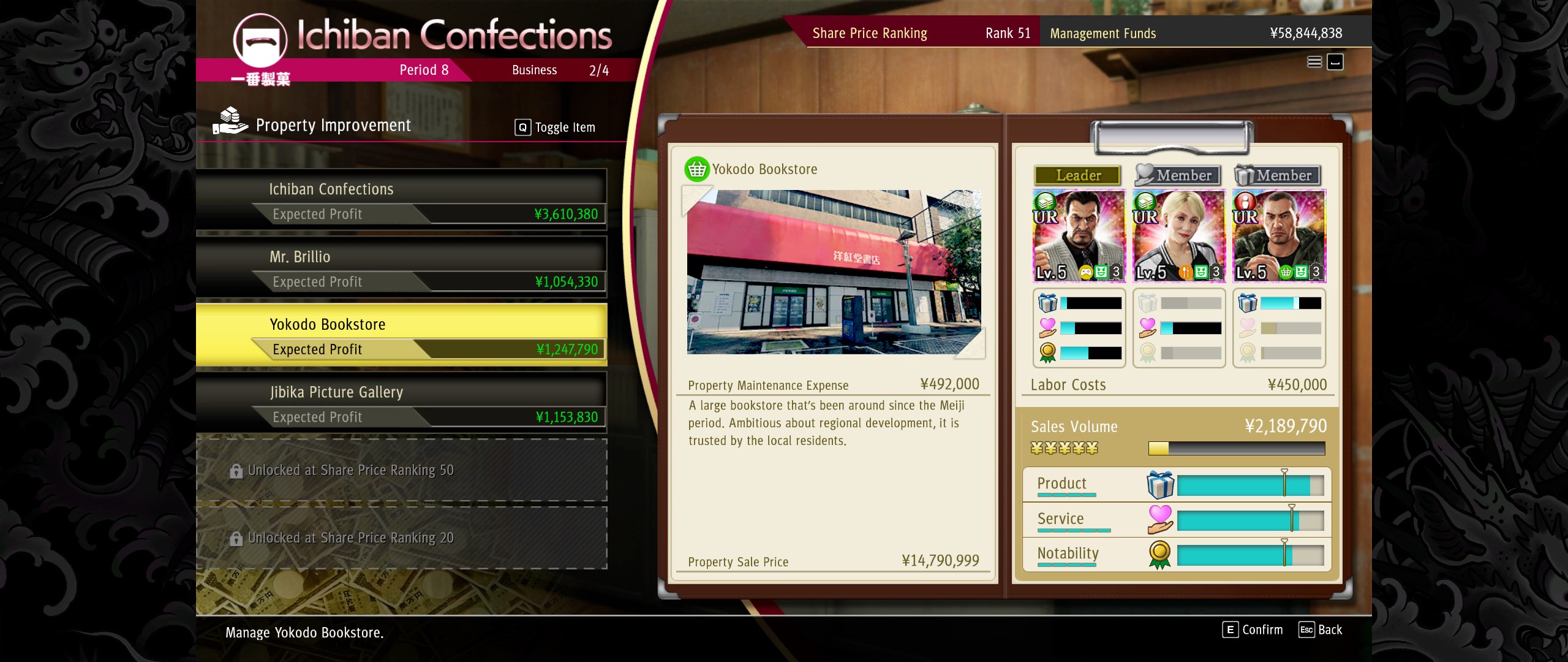
One of the most interesting parts of the game is business management. At first, we are given a poor candy shop, Ichiban Confections, which we can turn into a thriving and popular place. It’s not “we must,” but “we can” – this entertainment is purely optional. After completing the training (clicking here, hiring staff there), if the player wishes, they can ignore Ichiban Confections until the very end without any problems.
But that would be extremely unwise! Because:
- So we will lose a very cute and valuable member of the team (Eri Kamataki, she starts with the “clerk” class and accurately throws staples at enemies from a stapler).
- If you have a decent understanding of mechanics, running a business becomes insanely fun. And it’s quite easy to understand if you’ve played some kind of management simulator before – even more so.
- The growing empire brings money, no, not just money – MONEY!
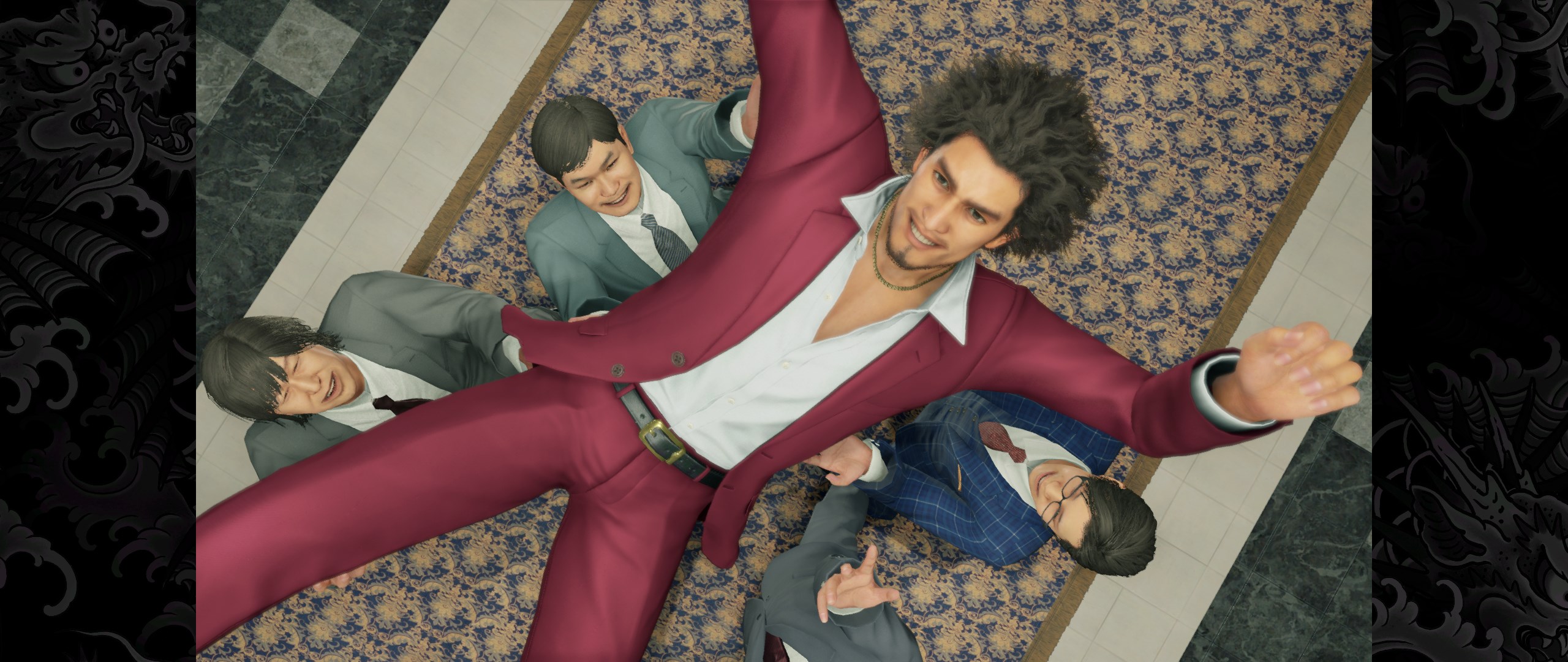
The candy shop business, of course, is not limited to just that. With the help of a wealthy friend willing to lend us a couple of million without repayment, we transform from a pitiful carp into a predatory shark of the business world. We buy up shops, exhibitions, brothels, turning unprofitable places into insanely profitable ones and reselling them again. We hire employees, digging them up from the dumpster at McDonald’s, and train them to become crazy managers. We attend board meetings. We rise in the rankings! It turns out to be a whole game within a game, resulting in good bonuses in the main passage.
Side quests! If I start listing and describing them, I’ll finish in about five hours. Each one is a whole story, a little touching, and always uniquely anecdotal. Ichiban brings together a life-disappointed masochist and a BDSM mistress; protects the sacred persimmon fruit from attacks; saves Nancy the lobster from a terrible death in a pot; helps a guy who ran out of the bathhouse completely naked, with only, um, bubbles, to run to a clothing store and not lose his beer disguise…
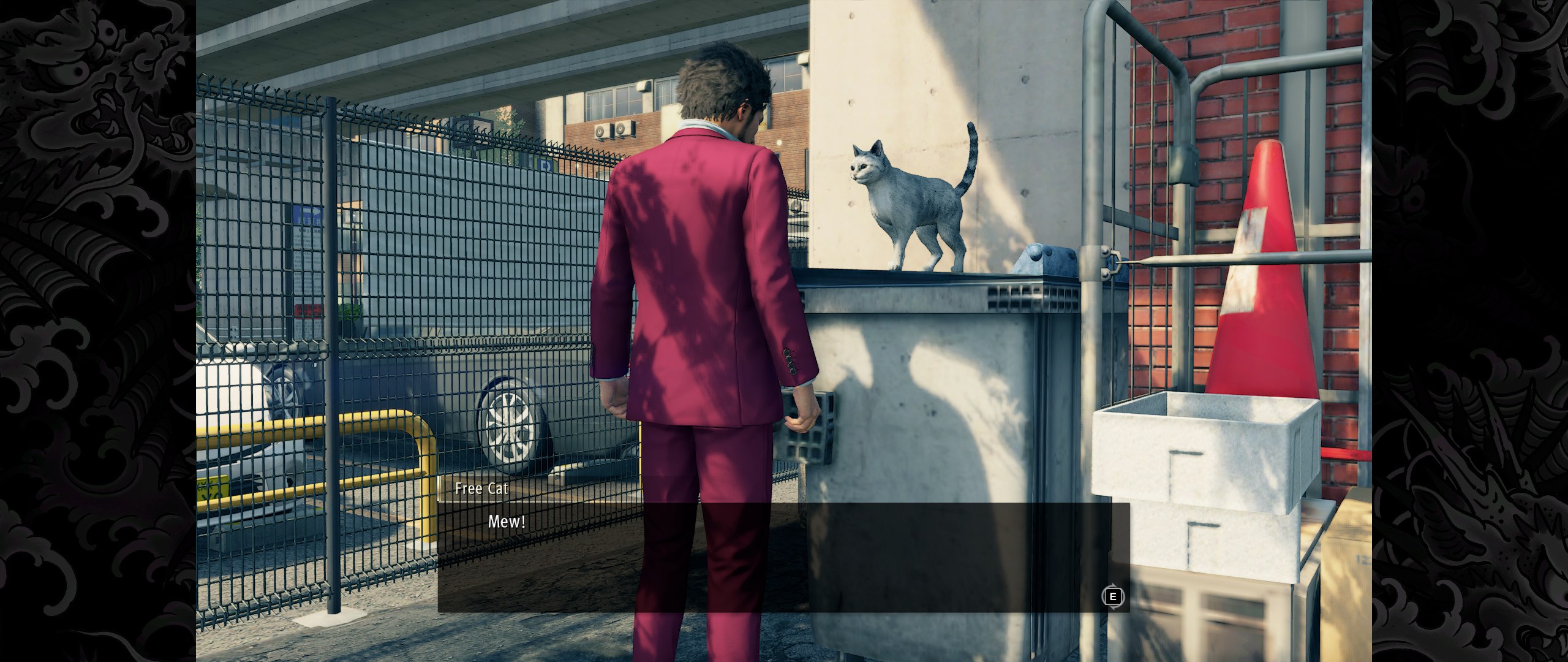
A continuous celebration and not a dull moment. By the way, what is typical for the “adult” series is that sex and nudity are discussed without embarrassment, with normal and adequate humor, and nothing “explicit” is shown. And there are no constant panty shots and peeks into the cleavage of every passing girl! How tired I am of all this in various Akiba’s Trip and similar works. For example, if you are annoyed by the short skirt of our idol-uniform-wearing Saeko, you can dress her in any of the available “more conservative” costumes.
In general, in Like a Dragon, there are numerous, simply COUNTLESS mini-games. After Persona 5, I knew that the Japanese are into darts and (strangely enough!) baseball, and now I am simply sure of it. Darts here, by the way, are not just a target attached to the wall, but an electronic and complex one: you need to fit into a tricky scoring system and not score more than necessary! There are claw machines – surprisingly, quite fair, and it’s unexpectedly pleasant to carry plush toys from there. There are regular arcade machines. There is a movie theater where Ichiban constantly falls asleep, and in a rhythm game that becomes more challenging, you have to fight sheep (apparently escaped from “Catherine”) to avoid hitting your nose.
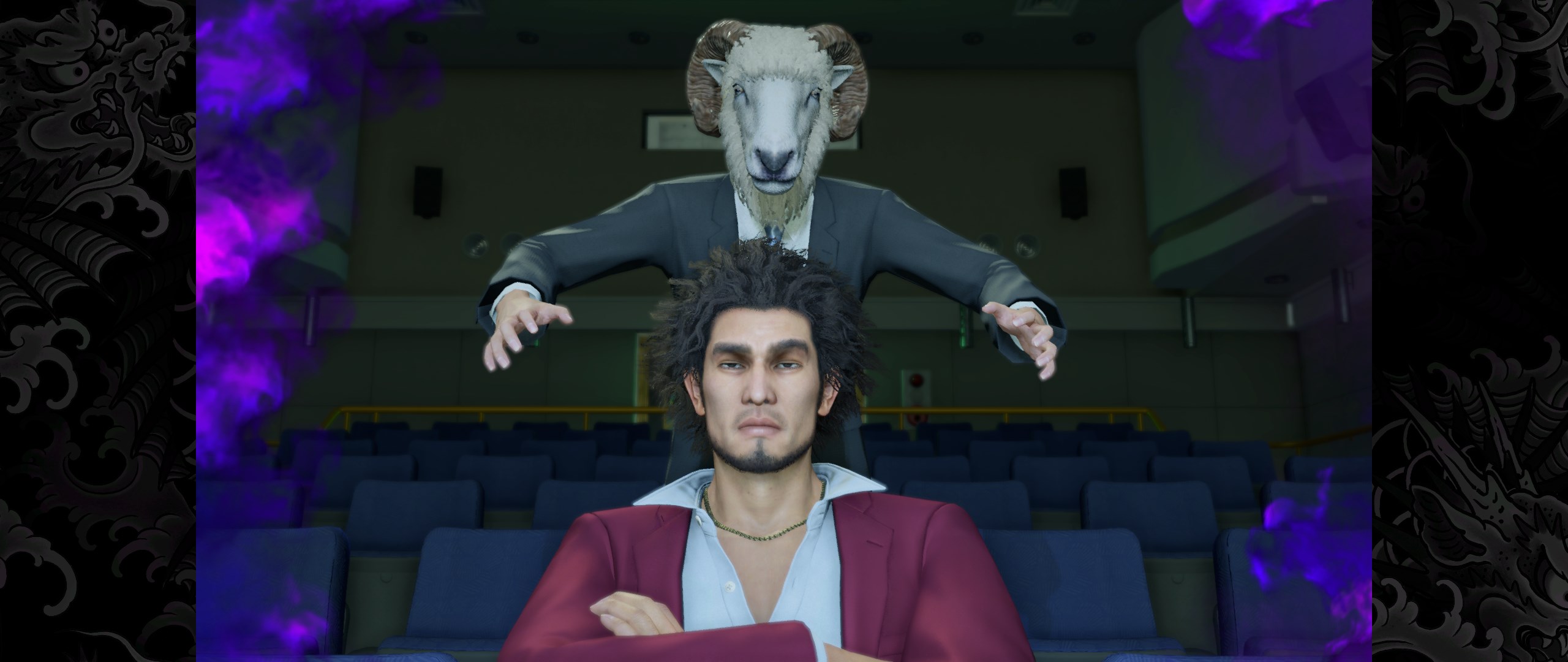
In addition: there are many card games – both classic ones like blackjack and purely Japanese ones, in which even Loki will struggle without a manual. Mahjong. Karaoke. And, of course, the incredibly fun obstacle-filled races with weapons – Dragon Kart! Don’t let go of the trigger, don’t miss the accelerations, upgrade your car, buy a new one, end up without money, run to earn more.
Thanks to this heap of entertainment in Yakuza: Like A Dragon, it is impossible to spend less than 100 hours, and maybe even all 200. Not all tracks have been completed yet, not all Part-Time Hero missions (another collection of side quests, plus there are cats there) have been done, the business is not yet fully upgraded… Oh yes, the main questline, of course… And you also need to collect the ultimate weapon for your party member, oh my!
I haven’t been so hooked in a long time. Hamsters in a vacuum cleaner are incomparable.
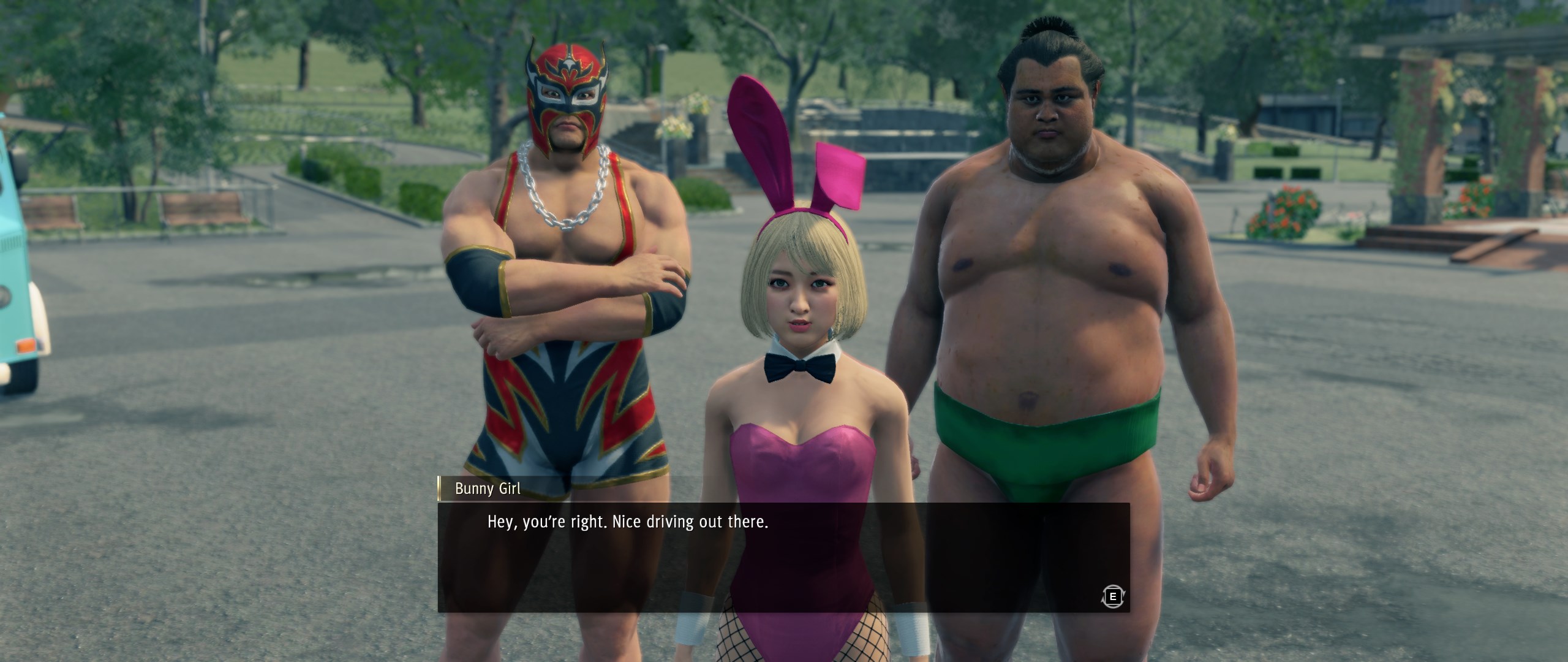
An amazing jRPG in every sense. And this is only the very first game in the series about Ichiban Kasuga! There will be more!
We are looking forward to it.
Share
Discuss
More Reviews
